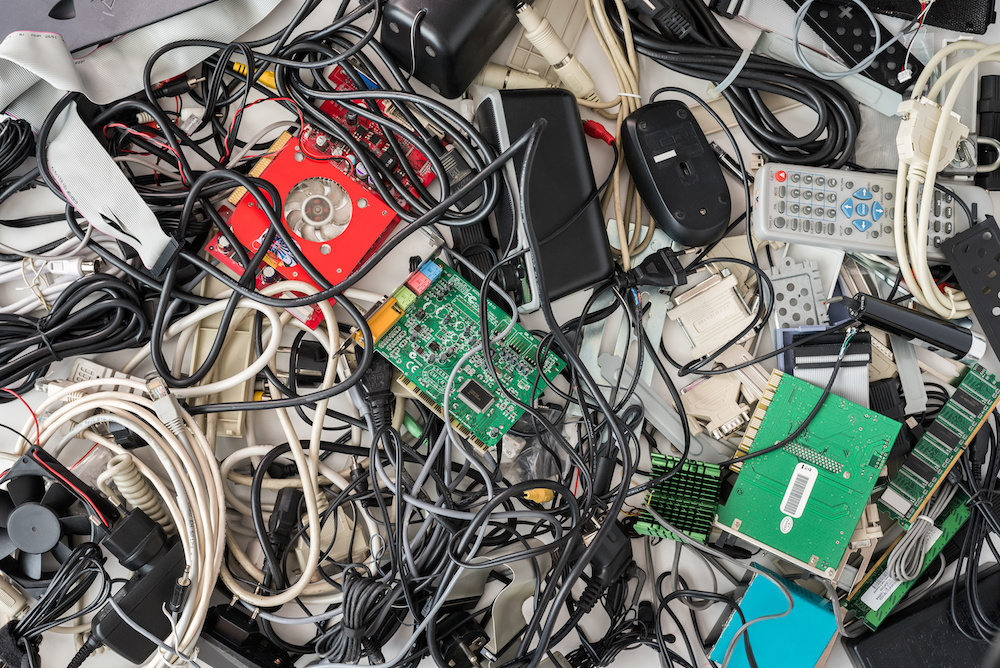
There’s no doubt that electronic recycling is becoming a major issue. Moore’s Law, a computing term from around 1970 which is still accepted, states that processor speeds or overall processing power for computers will double every two years, or more specifically that the number of transistors on an affordable CPU will double every two years.
The result is that electronic products are continually becoming obsolete and so more and more e-waste is being created by products that are no longer useful or desirable to those that bought them. Unfortunately the recycling of electronic waste isn’t growing anywhere nearly as quickly as the waste itself is.
Why electronic recycling matters
There are several reasons why it’s important to recycle electronic equipment. One is that much of the UK’s electronic waste ends up being shipped to developing countries like Ghana, India and Nigeria. Workers in these countries handling the hazardous materials inside of technological waste seldom have even the most basic safety equipment to protect them from the lead, mercury, arsenic, cadmium and flame retardants they are coming into contact with. The waste is often burnt, which can also create dangerous toxins.
Another reason electronic recycling matters is that the waste is just building up faster than it can be handled. According to the United Nations University’s Global E-waste Monitor, the amount of e-waste created around the world is predicted to reach 50m tonnes this year. As well as mobile phones and computer waste, this waste includes gadgets like fitness watches, novelty cards and gifts that use batteries to make light or sounds, and larger appliances such as washing machines and tumble dryers.
There are also a lot of precious materials inside of old electronic equipment that are just going to waste. It is estimated that electronic waste contains around forty to fifty times more precious metals than ores from mining. This could be worth over forty three billion pounds, so is not insignificant!
How to recycle electronics
The best course of action is to create less waste in the first place. Try to use your electronics for as long as you can before you decide they’re redundant, and if anything breaks down then try to repair it before replacing it.
When you do need to get rid of electronics, there are ways to do this more responsibly. Mobile phones are easily recycled in a multitude of places, however if you’re worried about your old data getting into the wrong hands, then Recycling Your IT offers a mobile phone recycling service whereby we also eradicate all data from your phone by shredding it into pieces smaller than a centimetre in diameter before sorting and recycling the materials it is made up of.
When recycling your IT equipment and other electronic appliances, ensure that you use a service that is WEEE compliant (a European law that all businesses and government bodies have to follow with regard to electrical and electronic equipment waste) and that does actually recycle everything, rather than just taking it off your hands and putting it into landfill. Recycling Your IT has a zero landfill policy, so you can be sure that nothing is wasted. Find out more about how we can help with responsible electronic recycling.
